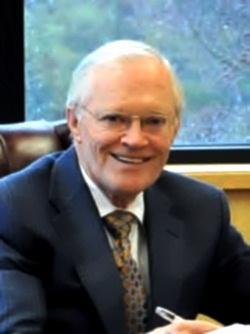Primogeniture
Among the European royal families there are several variations on the principle, but in England the rules are quite straightforward and dictate that Prince Charles is next in line to be king—despite what the public or the press may say. Only if Charles died first or voluntarily relinquished his right to the throne—a circumstance most consider very unlikely—could William inherit it instead of his father.
In times of economic woe, nothing lifts the hearts of the British public quite like a royal wedding. On Friday, April 29, Prince William and Kate Middleton will marry at Westminster Abbey in London. Dr. Rowan Williams, Archbishop of Canterbury, will conduct the ceremony while Richard Chartres, Bishop of London, will give the address. The bishop has been a long-time family friend of Prince William. The Prime Minister has announced that the day will be declared a public holiday so the British people can rejoice with the royal couple.
Buckingham Palace is keen to avoid a media circus on this occasion. Photo-hungry journalists often made William's mother's life unbearable. Though she was often the darling of the press, many blame Lady Diana's untimely death in a Paris road tunnel in 1997 on the overzealous efforts of these "paparazzi."
Prince William is widely respected for conducting his life with a balance of royal dignity while maintaining the common touch. He recently completed his training as a helicopter pilot with the United Kingdom's Search and Rescue Force. It is a tradition amongst the sons of the royals that they gain military experience in their twenties. Prince Charles served as a Royal Air Force pilot in 1971 and then as a Royal Navy commander until 1976.
The Next King?
For some years, many in the press have suggested that Prince William would be a more appropriate successor than his father, Prince Charles, upon the death of Queen Elizabeth II. The sentiment subsided for a time after Prince Charles married Camilla, Duchess of Cornwall, but has regained strength now that William and Kate are to marry.
According to a Reuters press agency report of November 21, 2010, soon after William and Kate announced their engagement, a "report in the News of the World showed that 64 percent of people wanted William and his future bride as next in line to the throne… The ICM survey also found that fewer than one in five people wanted the crown to pass to Charles and Camilla."
Why should such a question arise? And why not hold a referendum to find who the British public would choose as their next king? The answer lies in a centuries-old tradition that predates the current House of Windsor's claim to the throne. Going back to the times of the Saxons and Normans, England has been ruled by the son (or at times, the daughter) of the prior monarch.
The rule behind the king's selection is known as Primogeniture. The Compact Oxford Dictionary defines it this way: "pry-moh-jen-i-cher / noun: 1 the state of being the firstborn child. 2 the system by which the firstborn child, especially the eldest son, inherits all his parents' property."
The word is taken from the Latin primo ("first") and genitura ("birth"). Among the European royal families there are several variations on the principle, but in England the rules are quite straightforward and dictate that Prince Charles is next in line to be king—despite what the public or the press may say. Only if Charles died first or voluntarily relinquished his right to the throne—a circumstance most consider very unlikely—could William inherit it instead of his father.
The concept of a monarchy is foreign to many people who live in a republic. They cannot understand how and why such an archaic and anachronistic institution should still exist. Even so, many Canadians, Australians and New Zealanders are content to have the English monarch as their titular head. There is a sense of stability that comes with the Westminster form of constitutional-monarchical government.
God promised in Genesis 49, that in the "last days," Jacob's (Israel's) sons would be blessed with great wealth and power. These twelve tribes' descendants are found today primarily in the areas of the northwestern European coastline and the British Isles—along with their descendants around the world. Long-time readers of Tomorrow's World understand that the British and American peoples are among the descendants of the ancient twelve tribes of Israel. They have been the primary beneficiaries, though we now see those blessings vanishing at an ever-increasing rate.
As these "last days" approach their climax, other prophecies are being fulfilled regarding these nations' troubles and punishment by God. When God the Father sends His Son back to the earth as His chosen "Lord of lords and King of kings" (Revelation 17:14), Christ will be assuming His rightful role as King of His Father's Kingdom. God the Father will Himself be following the pattern of primogeniture, as Christ is indeed the "firstborn of many brethren" (Romans 8:29) with many other kings ruling under Him (Revelation 1:5–6).
King of Kings
Indeed, the ultimate fulfilment of this ancient tradition will manifest itself in the coronation of Jesus Christ as King of kings. Let us notice some wonderful prophecies for this coming Kingdom.
We read: "For unto us a Child is born, unto us a Son is given; and the government will be upon His shoulder… upon the throne of David and over His kingdom, to order it and establish it with judgment and justice from that time forward, even forever" (Isaiah 9:6–7).
Also: "The kingdoms of this world have become the kingdoms of our Lord and of His Christ, and He shall reign forever and ever!'" (Revelation 11:15).
Revelation 19 describes the returning Christ as the Word of God coming to earth on a white horse, and reveals that "He has on His robe and on His thigh a name written: KING OF KINGS AND LORD OF LORDS" (v. 16).
Jesus Christ will be King of kings. But who are the kings over whom He will be King? Your Bible explains that—right now—God is preparing His people to rule on earth under Jesus Christ. Revelation 5:10 describes these rulers as "us"—indicating that John was writing to Christians of this present age. The previous verse identifies the "us" as those whose sins are washed away in Christ's own blood.
What is the reward of faithful Christians today? It is that Christ will have "made us kings and priests to His God and Father, to Him be glory and dominion forever and ever, Amen" (Revelation 1:6). Amazing as it may seem, God is calling true Christians today to develop the character required to assist Jesus Christ in bringing peace and prosperity to a sin-sick world. Such an honour will be bestowed upon those who have overcome the world and their own human nature. It is not easy to overcome and win the battle against the constant pull of human nature within, and society's pressures without. But God tells us it is worth it. Revelation 21:7 explains our reward, "'He who overcomes shall inherit all things, and I will be his God and he shall be my son."
To understand more about this incredible human potential, contact the Regional Office nearest you (listed on page 30 of this magazine) to request our free booklet, Your Ultimate Destiny.






